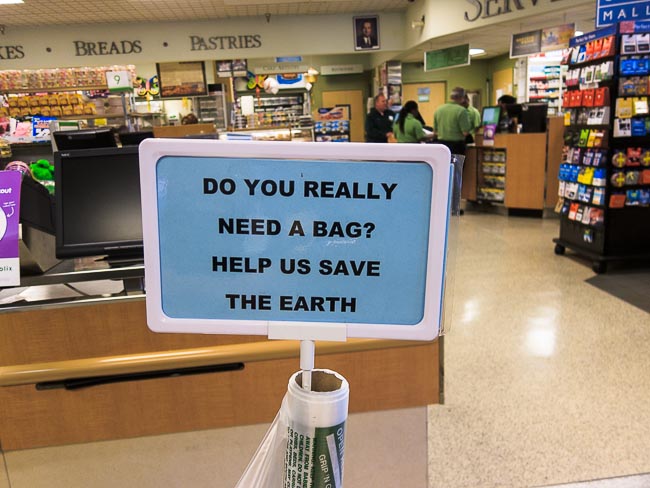Judging by what I see communicated by many of my longtime friends, there are a whole lot of confused people out there these days. Here is a helpful list for them:
- Only a small minority of projects, even in relatively successful organizations in highly competitive industries, deliver their promised scope, on time, within budget. A large majority are drastically scaled back, incur huge cost overruns, deliver years later than intended, or are canceled outright. Anything nefarious either fails or is publicized by whistle-blowers or investigators. There are no secret, vast criminal enterprises pulling the wool over the eyes of the populace, and the best-known entities in society, both public and private, can be astonishingly inept.
- Large publicly-funded initiatives, other than those intimately connected to the physical survival of the societies in which they are undertaken, are quite likely to be mainly for show, irrespective of their supposedly spectacular significance. The current American example is the ACA, which has not resulted (and almost certainly will not result) in either greater insurance coverage or lower costs, is notoriously not a fully government-operated, “single-payer” system, and has no pathway to lead to one. None of this matters; indeed, many of its provisions, if they ever go into effect, will do so only after the current Administration has departed from the scene. All that matters is that its perpetrators get to claim to have passed “historic” legislation ostensibly providing “universal” health care. For an example from an earlier generation, see the Space Shuttle, which was supposed to fly 50-60 times per year at $5.5 million per launch. The actual flight rate hovered around a tenth of what was promised, and each launch cost nearly a hundred times the original projection. Hilariously, President Obama is now being criticized for ending this, even though it was collapsing from its own weight and consisted mainly of workfare jobs in Republican congressional districts.
- Notwithstanding phenomena like the above, the United States is probably the most successful large-population country in the world due to its sheer realism, in particular the relative openness and process orientation of English common law, which (to quote myself) “rather than construct elegant theories and then shoehorn (or bludgeon) societies into an unchanging mold,” exhibits “a willingness to work with the world and human nature as it is.”
- Even ignoring the fantastic technological advances, quality of life in the US has improved immensely in the past two decades. Social pathologies have plummeted. The rates of some categories of crime are down 90%, to all-time recorded lows. There are now fewer abortions per capita than at the time of Roe v Wade. Probably three-quarters of Americans live in neighborhoods where violent crime is effectively nonexistent. And the worst labor market in 80 years has done nothing to reverse these trends.
- Large-scale, institutionalized technologies range from the very safe (electric-power generation [including nuclear] and transmission) to the so-safe-there-is-no-instance-of-recorded-harm (agricultural genetic engineering). The problem is that in much of the real (that is, Third) world, they are insufficiently available to provide the thoughtless, comfortable existence that pervades most of the West. Living “off the grid” / following a soidisant “natural” lifestyle is a plaything of rich people who can slink away into town whenever they get tired of hewing wood and drawing water. Especially water with enterotoxigenic E. coli in it.
- Pharmaceutical companies are not trying to kill you, nor to provoke health crises to sell new drugs. They may in some instances be trying to convince you that your life depends on continuing to purchase their products, whether it actually does or not. Then again, so is the “health food” store down the street, and in all likelihood, what it’s pushing is far more dangerous.
- All religions are not equal. The general heuristic is to judge them by their effects, or at least by their efforts. Those prescribing global expansion through conquest and coercive displacement, and those (especially if they don’t refer to themselves as religions) prescribing the extermination of followers of other religions, are particularly problematic.
- Any conspiracy theory that mentions the Mossad, Rothschilds, etc, is every bit as viciously anti-Semitic as Mein Kampf and should be treated as such. Anyone expressing admiration for Marxist notions and personages is no better. Conspiracy theories involving the CIA quaintly ignore the NSA (which is ~6x larger) and, in any case, descend from Stalinist and Maoist propaganda during the early Cold War and the Korean War. Facile anger about the NSA, however, ignores its well-publicized activities with the analog wireline telecommunications of 30-40 years ago, as amply documented in Bamford’s The Puzzle Palace. The phenomena of Wikileaks and Snowden’s massive data theft are an existence proof that such activities can neither be kept secret nor have much influence on real-world events; as someone who read through the supposedly devastating Wikileaks cables remarked, “[American diplomats] sound like Canadians with better access.”
- No amount of “smart diplomacy” or supposed avoidance of provocation will protect a country from attack. Only a convincing ability to make an attack more trouble than it could possibly be worth can do that, and even such an ability may be insufficient to deter non-state actors and small groups. In combination with steadily declining costs of dual-use technologies, a more-or-less freelance WMD attack somewhere in the world seems inevitable. When it occurs, the greatest hazards to the immediate survivors will be 1) official overreaction, as by ordering the evacuation of a far larger area than was actually affected and 2) popular derangement, which in the worst-case scenario may create a conspiracy theory popular enough to put an extremist political movement in power, even in a large, democratic nation.
Commenters are encouraged to provide additional examples and corollaries.
